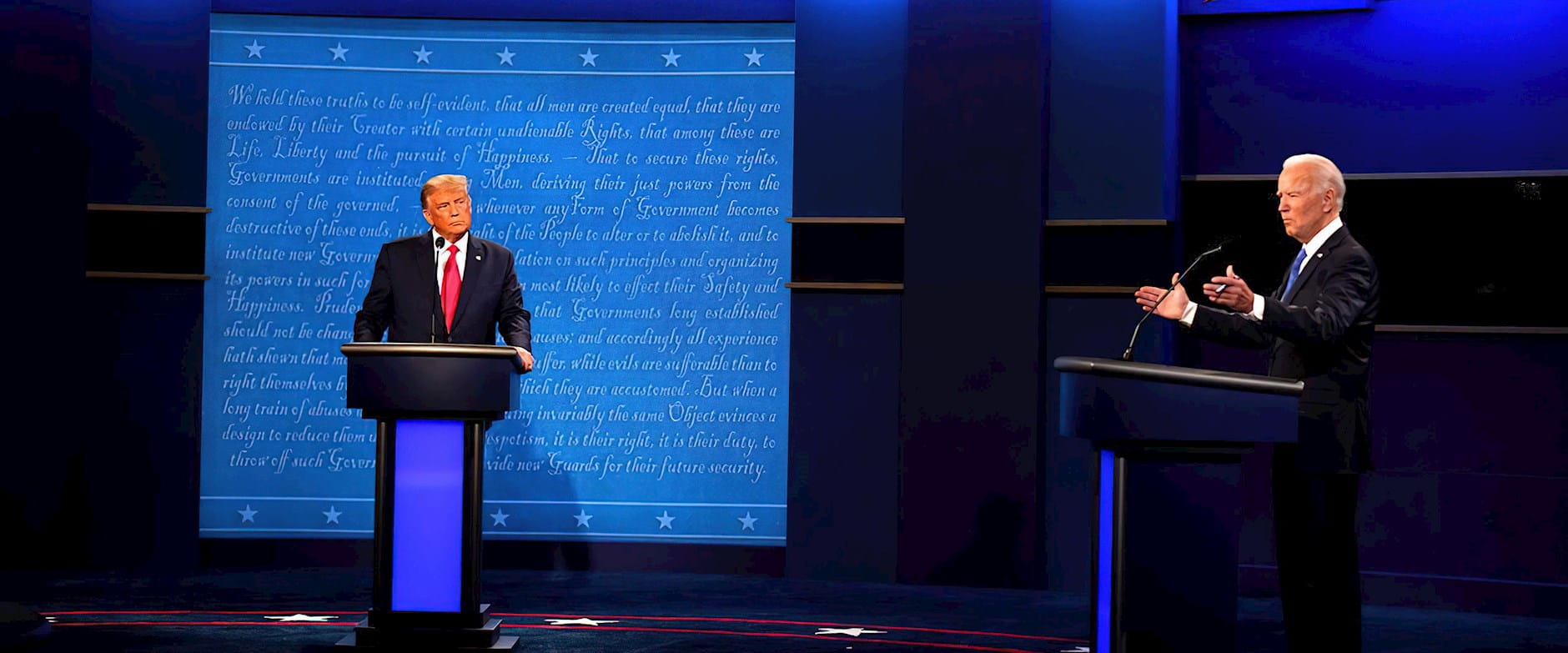Eighty-seven percent of Democrats expect Joe Biden to win the US presidential election, while 84 percent of Republicans expect the win will go to Donald Trump, finds a survey of US households. Voters in both parties not only expect their candidate to win, but have a high degree of confidence in their predictions.
Besides highlighting just how polarized Americans are in the run-up to the election, the survey reveals that voters tend to express starkly different outlooks about the future under a Biden or Trump administration, a situation that carries economic risk, write University of Texas’s Olivier Coibion, University of California at Berkeley’s Yuriy Gorodnichenko, and Chicago Booth’s Michael Weber.
The researchers used an online survey tool to ask 5,000 people about their political views, economic expectations, and voting intentions. The survey, which ran from October 19 through 21, collected information about political affiliations, voting plans, preferred news sources, savings patterns, anticipated income and spending, and more.
Among respondents, 41 percent said they leaned Republican and 36 percent leaned Democrat, with the rest identifying as neither. Trump and Biden were nearly tied in the survey, with 44 percent for Trump and 43 percent for Biden. (By contrast, as of October 28, the average of national polls reported by the data-journalism site FiveThirtyEight had Biden leading Trump by 8.5 percentage points.)
The average Republican respondent put the odds of a Trump win at 76 percent, and Democratic respondents put Biden’s chances almost as high. Meanwhile, 20 percent of Republicans and 15 percent of Democrats said their candidate had a 100 percent chance of winning, a prediction with which no one from the opposite party agreed.
“We all have different political preferences. But despite wanting different things, voters should be able to broadly agree on the likelihood of different electoral outcomes given that much of the relevant polling information is publicly available,” write the researchers. “This is, in fact, far from being the case.”
Some of this could be explained by voters watching TV channels with different political leanings, the researchers acknowledge. And yet, when they showed survey participants recent polling data from different sources, the respondents didn’t change their views, regardless of the source. “The views of many individuals of either party are so tightly held that they are unaffected by information that calls for a more nuanced view,” write the researchers.
Only when respondents saw predictions that included a clear margin of error did they move away from their more confident, extreme predictions. If news reports were to make the uncertainty involved in poll predictions clearer, there could be more common ground among voters, the researchers argue.
The polarization suggested by the survey results could have economic implications, as people’s political views shape their economic expectations. In the survey, respondents predicted a positive future under an administration led by their preferred winning candidate but were pessimistic about what would transpire under the opponent. People’s predictions about the economy can in turn affect their spending, and though past research by Princeton’s Atif Mian, Booth’s Amir Sufi, and Argus’s Nasim Khoshkhou has found evidence that US presidential electoral results don’t typically drive spending decisions, it’s still possible that a sizable percentage of the US population may tighten their budgets after election day—a situation Coibion, Gorodnichenko, and Weber say is likely to occur.
“These results suggest that the upcoming elections might trigger a decline in aggregate consumption after the Presidential election, as members of the losing party adopt a much more pessimistic outlook while those of the winning party maintain their previous optimism,” they write.
The economy is hardly the only thing imperiled by the gap separating Republicans and Democrats, however. The researchers note that current trends of polarization threaten to undermine electoral outcomes and potentially destabilize the current political system.
- Olivier Coibion, Yuriy Gorodnichenko, and Michael Weber, “Political Polarization and Expected Economic Outcomes,” Working paper, October 2020.
- Atif Mian, Amir Sufi, and Nasim Khoshkhou, “Partisan Bias, Economic Expectations, and Household Spending,” Working paper, March 2018.
Your Privacy
We want to demonstrate our commitment to your privacy. Please review Chicago Booth's privacy notice, which provides information explaining how and why we collect particular information when you visit our website.
